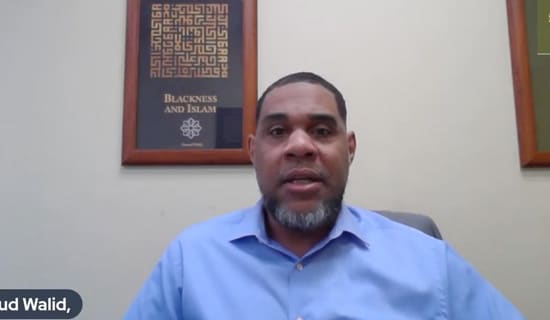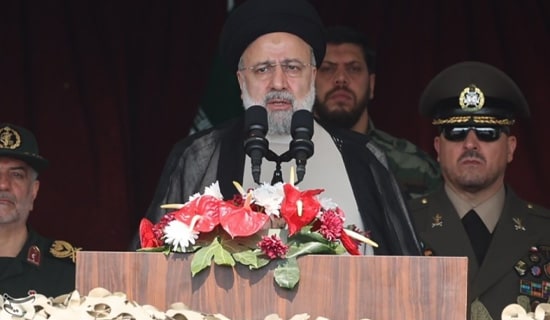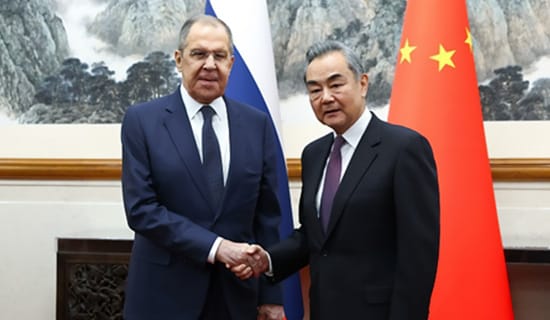In the two years since the January 25, 2011 revolution, Egypt's economy has severely deteriorated. In recent weeks, figures have been published testifying to the depth of the crisis. On December 31, 2012, the Egyptian finance minister said the country needed $14.5 billion within the next 20 months, and that its revenue was sufficient to cover only 60% of its expenses.[1]
On December 27, 2012, the value of the Egyptian pound against the U.S. dollar dropped to a low not seen for years,[2] only days after Egypt's credit rating was downgraded.[3] Moreover, the Central Bank of Egypt has warned that the country's foreign currency reserves have bottomed out,[4] while the Egyptian government press has published data reflecting a significant decrease in the number of tourists to Egypt in 2012.[5] In yet another indication of the economic crisis, a 22-year-old youth from the Beni Suef governorate recently self-immolated after failing to find work.[6]
In an effort to overcome the economic crisis and to cover the deficit in Egypt's 2013 state budget, the government has been negotiating a $4.8 billion loan from the IMF in recent months. However, in December 2012, the government decided to freeze the negotiations until after the constitutional referendum, fearing the public response to an increase in taxes as stipulated in the loan agreement.[7] Negotiations resumed following the referendum, and on January 7, 2013, an IMF delegation arrived in Egypt to discuss the loan with the president and prime minister.[8]
In response to the reports of the deepening economic crisis, officials, especially among the opposition, warned that the country was on the verge of bankruptcy. For instance, on November 25, 2012, it was reported that Hisham Tawfiq, a board member of the Egyptian Stock Exchange, anticipated that the country would declare bankruptcy within three months unless serious steps were taken to prevent this. The following day, it was reported that former presidential candidate Ahmad Shafiq had made a similar estimate. Shafiq wrote this on his Facebook account following stock market declines.[9] In an article in The Financial Times, prominent Egyptian oppositionist Dr. Mohamed ElBaradei predicted that, unless the IMF loan materialized, the Egyptian market would collapse within six months.[10]
In response, President Mursi, Prime Minister Hisham Qandil and other senior officials issued statements attempting to calm the public, denying outright the claims that Egypt was on the verge of bankruptcy. In his opening remarks at a December 29, 2012 session of the Shura Council, Mursi said: "Those who speak of bankruptcy are [morally] bankrupt," and stressed that Egypt would never go bankrupt. Mursi supported his claims with encouraging figures, noting, for instance, that between July and October 2012, there had been an increase in revenue from the Suez Canal, and that the number of tourists visiting Egypt had grown in the last third of that year. He added: "Despite the burden on the government in this difficult situation, and despite the enormous challenges facing the Egyptian economy, the economic indexes of the social and economic situation indicate notable progress in several areas. For example, in the first quarter of the 2012-2013 fiscal year, Egypt's economy managed to achieve growth... and to shrink the deficit in balance of payments... I say to everyone in Egypt and abroad that the state of the bank system is not [as grim] as some have claimed..."[11] On January 1, 2013, Mursi said that the depreciation of the Egyptian pound was the natural result of several economic measures, and estimated that Egypt's currency would stabilize within several days.[12]
At a December 30, 2012 press conference, Prime Minister Qandil conceded that the economic situation in Egypt was fragile, and that the budgetary deficit was severe, but clarified that "there is no room to speak of bankruptcy or collapse." He announced a national initiative for an economic breakthrough to achieve social justice, financial stability, increased investments, employment, business innovation, energy development, and tourism, and to fight corruption.[13]
Several days prior to his dismissal from office, Egypt's former finance minister Mumtaz Al-Sa'id said that there were no signs whatever of imminent bankruptcy, and that the country was, in fact, quite distant from such a possibility.[14] Likewise, presidential spokesman Yasser 'Ali dismissed such predictions, saying that they originated with non-experts in the matter, and emphasized that there was no need to panic.[15]

Cartoon on pro-Muslim Brotherhood website: "Following the failure of the 'No to the Constitution' charade, a new charade [by the opposition]: 'Egypt Faces Bankruptcy'"
Egyptian Columnist: There Will Be "A Boundless Revolution of the Hungry"
For several months, and in light of the economic crisis, various voices in Egypt, including some supporters of Mursi and his regime, have been warning of the possibility of a "bread revolution." For example, the Muslim Brotherhood's Freedom and Justice party has warned that Mursi's planned economic and social reforms, which are required by the IMF loan deal, and which involve raising gasoline prices and imposing new taxes, may lead to a revolution by Egypt's poor that would topple his government.[16]
Similar warnings were voiced by well-known Egyptian businessman and columnist 'Imad Al-Din Adib, who writes for the independent Egyptian daily Al-Watan and for the London-based Saudi daily Al-Sharq Al-Awsat.[17] He too argued in several articles that the next revolution is likely to be "a boundless revolution of the hungry."
The Growing Frustration May Lead To An Explosion
In an October 23, 2012 article in Al-Watan, Adib wrote: "The bar of social hopes and expectations has risen to an unprecedented level today, because certain sectors of the patient Egyptian nation have grown very limited in their patience, and are tired of the false promises made by a series of regimes since 1952. [However,] what concerns the Egyptian [citizen] today... is how to punish [the criminals] of the past... when the real question is how to deal with [the problems of] the present and prepare for the near future... This preoccupation with the past is accompanied by a denial and disregard of the citizens' current daily needs and a refusal to really deal with them...
"The next great danger [we will face] will not be political. It will be a furious revolution of the hungry [resembling] an earthquake measuring 1,000 on the Richter scale... I [therefore] hope that Egypt's political elite will focus on the [economic] crisis – [manifest in] lack of resources, decreasing investments and insufficient public services – as much as it focuses on the issues of the constitution, the prosecutor general and the establishment of new parties. If, in the first quarter of the next year, we find ourselves [still] preoccupied with political retaliation, then the dire economic situation and the growing social demands may trigger an explosion and a danger beyond our control."[18]
The Next Revolution Will Not Be A "Facebook Revolution" But A Violent Revolution Of The Poor, Emanating From The Slums
In an article published in Al-Watan the following week, Adib wrote: "The next intifada or revolution will not come from the Facebook youth but from the residents of the belts of slum surrounding the cities. These protests will not be peaceful; [they will be waged] 'with swords and spears'. The calls will not be 'the people want to topple the regime,' but rather 'the people want to crush the regime.' [The protesters] will not clean up the squares after the demonstrations, nor will they return quietly to their homes or respect public and private property. The glue holding them together will not be Facebook but the poverty and despair of their daily lives and the lack of hope for a bright future.
"These people do not [even] have water to wash their faces in the morning, and have no choice but to use the sewage overflowing in their streets. They do not have a few pennies to pay a cab driver, and have no position and no job... They will [form] a 'Nothing' party that will offer nothing... and will not be committed to any figure or organization. Nor will [they] be concerned with notions of homeland, state, regime, people, security and stability. In the January 25, 2011 [revolution], the non-violent protesters were completely preoccupied with lofty notions about 'the state of the homeland.' But the next revolution or [outbreak of] anarchy will know only one slogan: 'Me, me, and to hell with everybody else.'
"It is the latest data on the state of the slums that motivated me to write this pessimistic article. According to the data, there are 1,200 slums in Egypt, 682 of which are considered 'dangerous.' Moreover, the alternative housing solutions that have been offered to the residents of these slums meet only 5% of the demand... and most of them lack the necessary services. The situation is therefore on the brink of explosion, and the solutions we propose are very limited... This is a complete failure and an ideal climate for turning these citizens, who, for years, have lived silently on the margins of society, into frenzied, raging [rebels] and opponents of the [existing] order. [They may] even declare a state of anarchy and take up arms of every kind against society, which they regard as 'oppressive.'"[19]
SUPPORT OUR WORK

Egypt On Verge Of Economic Abyss
In a December 23, 2012 article in Al-Sharq Al-Awsat, Adib tied Egypt's economic woes to its political problems and to Mursi's mismanagement of the country: "While the lenses of the TV [cameras] are focused on the political events in Egypt, they are neglecting many of the financial and economic [woes] affecting the country, chief of which are:
"1. The Qatar National Bank's takeover of the Egyptian-French [branch of the] Société Générale bank.
"2. The Dubai National Bank's takeover of [the Egyptian branch of] the BNP Paribas bank.
"3. The deal between the UAE company Al-Futtaim and the [Egyptian] Mansour Group to purchase its supermarket [chain]...
"4. The strengthening of the dollar against the Egyptian pound to the highest exchange rate since January 25, 2011.
"5. Reports of a sharp decline in strategic comestible and oil reserves, due to a lack of foreign currency with which to import them.
"6. Reports of a 'temporary freeze' of the Egypt–IMF deal for a $4.8 billion loan, and of the Egypt-EU deal for a €4 million [loan].
"All this constitutes a steep bill that the Egyptian economy is paying as a result of the political struggle [between the two rival camps] in the country since the November 21, 2012 constitutional declaration.[20] This political decision came at a higher cost than anything in the history of modern Egypt, and no one knows why Egyptian President Dr. Muhammad Mursi [felt] it was necessary to pay this bill...
"If anyone wrongly thinks that, now that the issue of the constitution has been settled [following its ratification by referendum], things will calm down... he is completely mistaken. Things may seem calm on the surface, but the causes of the tensions and upheavals are still raging, for there is a basic crisis in how political decisions are taken in the country.
"[The struggle over] the constitution is a symptom of a central illness, namely 'the historic hostility between the regime and its rivals.' If the dispute between and within these forces is not resolved, the crises will only escalate, [our] economy will be increasingly shunned [by everyone], and the price of resolving [the crisis] will only rise... Egypt is on the verge of political danger and an economic abyss."[21]
[1] Alarabiya.net, December 31, 2012.
[2] Alarabiya.net, December 31, 2012.
[3] Al Sharq Al-Awsat (London), December 25, 2012.
[4] Alarabiya.net, December 30, 2012.
[5] Al-Ahram (Egypt),December 30, 2012.
[6] Al-Quds Al-Arabi (London), December 30, 2012.
[7] Al-Ahram (Egypt), December 17, 2012.
[8] Al-Wafd (Egypt), January 7, 2013.
[9] Al-Masri Al-Yawm (Egypt), November 25-26, 2012.
[10] Ft.com, December 3, 2012.
[11] Ikhwanonline.com, December 29, 2012.
[12] Al-Ahram (Egypt), January 1, 2013.
[13] Al-Ahram (Egypt), December 31, 2012.
[14] Al-Yawm Al-Sabi' (Egypt), January 1, 2013.
[15] Al-Watan (Egypt), January 2, 2013.
[16] Islammemo.cc, November 8, 2012.
[17] In 2011, Adib declined a proposal to serve as propaganda minister in Ahmad Shafiq's transitional government established following the revolution, claiming that "democratic countries have no propaganda ministries." Al-'Arab (Qatar), February 14, 2011.
[18] Al-Watan (Egypt), October 23, 2012.
[19] Al-Watan (Egypt), October 31, 2012.
[20] See MEMRI Inquiry & Analysis Series Report No.907, Egypt Under Muslim Brotherhood Rule: The Constitutional Declaration – Dictatorship In The Name Of The Revolution, December 7, 2012.
[21]Al-Sharq Al-Awsat (London), December 23, 2012.




